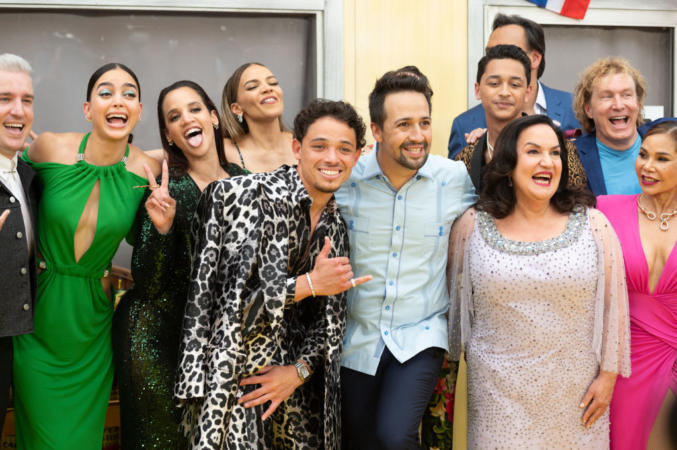After scrutiny of the film’s lack of darker-skinned Afro-Latinx actors and actresses in its main cast, Lin-Manuel Miranda has issued an apology.
Jon M. Chu directed the film, based on Miranda’s Broadway play. Miranda is also a producer on the film adaptation. In the Heights takes place in New York City’s Washington Heights neighborhood, known for its primarily Dominican population, with many residents being brown and darker-skinned.
His statement, which he posted on Twitter, Miranda states:
I started writing In the Heights because I didn’t feel seen.
And over the past 20 years all I wanted was for us — ALL of us — to feel seen.
I’m seeing the discussion around Afro-Latino representation in our film this weekend and it is clear that many in our dark-skinned Afro-Latino community don’t feel sufficiently represented within it, particularly among the leading roles.
I can hear the hurt and frustration over colorism, of feeling still unseen in the feedback.
I hear that without sufficient dark-skinned Afro-Latino representation, the work feels extractive of the community we wanted so much to represent with pride and joy.
In trying to paint a mosaic of this community, we fell short.
I’m truly sorry.
I’m learning from the feedback, I thank you for raising it, and I’m listening.
I’m trying to hold space for both the incredible pride in the movie we made and be accountable for our shortcomings.
Thanks for your honest feedback. I promise to do better in my future projects, and I’m dedicated to the learning and evolving we all have to do to make sure we are honoring our diverse and vibrant community.
Siempre, LMM
When folks on social media started talking about colorism and accurate representation in the film, an interview that Chu and some of the actors did with The Root’s Felice Leon went viral. In the interview, Both Chu and actress Melissa Barerra’s answers received mostly negative reactions, with Chu stating while he recognized the problem, the actors that were chosen were the best for the role.
Barerra said, “In the audition process, which was a long audition process, there were a lot of Afro-Latinos there. A lot of darker-skinned people. And I think they were looking for just the right people for the roles. For the person that embodied each character in the fullest extent.”
Leslie Grace, an Afro-Latina actress in the film, spoke on her desire to see more dark-skinned Afro-Latinx people represented in film. “I didn’t realize until making this movie that I didn’t really get to see myself or people that looked like my siblings, that are darker than me, onscreen. I hope that this is cracking that glass ceiling. Because I do hope to see my brothers and sisters that are darker than me lead these movies.”

